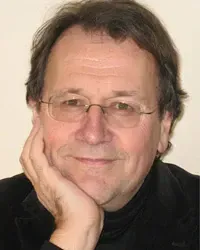Bridging the divide between science and arts
Written by

Does evolution by natural selection rob life of purpose? Best selling author and professor of English, Brian Boyd will take a contrary view in “Evolution, Art, Science and Purpose”, the latest of this year’s Seasons of Life lectures hosted by The University of Auckland’s Liggins Institute.
The lecture will be held on Wednesday 19th August in the Robb Lecture Theatre in the Faculty of Medical and Health Sciences 85 Park Road, Grafton at 6pm. The popular annual public lecture series this year celebrates Darwin bicentenary and the sesquicentenary of On the Origin of Species, which contains what has been called "the best idea anybody ever had." Boyd is the third of five distinguished speakers from the sciences, arts and humanities, each focusing on aspects of evolution – from the origins of the human body plan to Man’s instinctive love of beauty.
In “Evolution, Art, Science and Purpose” Professor Boyd will show how evolutionary thinking has lately expanded from the biological to the human world, first into the social sciences and recently into the humanities and the arts. Many people therefore now understand the human, even human culture, as inextricably biological. But many others feel that a Darwinian view of life and a biological view of humanity can only deny human purpose and meaning. Boyd disagrees. Darwin, he says, has made it possible to understand how purpose, like life, builds from small beginnings, from the ground up. In a very real sense, evolution creates purpose.
A specialist in English literature, in particular the works of Russian-American novelist Vladimir Nabokov, Brian Boyd is a University of Auckland Distinguished Professor. His current research interests focus on the interface between science and literature; he has edited Vladimir Nabokov's scientific writings; teaches a course on Literature and Science and is currently researching a biography of the philosopher of science Karl Popper.
His book On the Origin of Stories: Evolution, Cognition, and Fiction, published earlier this year, takes two examples: Homer's Odyssey and Dr. Seuss's Horton Hears a Who! The book has been acclaimed by reviewers, including:
“Diffusion of Boyd's ideas might even, in our utilitarian and scientistic society, restore the prestige of the arts and humanities.” William Deresiewicz, The Nation
“Boyd brilliantly makes the case for literature as necessary for the survival of humankind” Barbara Fisher, Boston Globe
“A searching, free-wheeling book that sets forth a Darwinian view of narrative's place in human history” Robert Fulford, National Post
At one stage the book was simultaneously the number one seller in two of the three categories that Amazon.com reported, and number two in the third.
To book for this free public lecture email friends@liggins.auckland.ac.nz, telephone (09) 303 5972 or see www.liggins.auckland.ac.nz
Future lectures in the series are “Darwin and Medicine” by Professor Sir Peter Gluckman (16 September) and “The Art Instinct: why we evolved to love beauty” by Professor Denis Dutton, University of Canterbury (07 October).